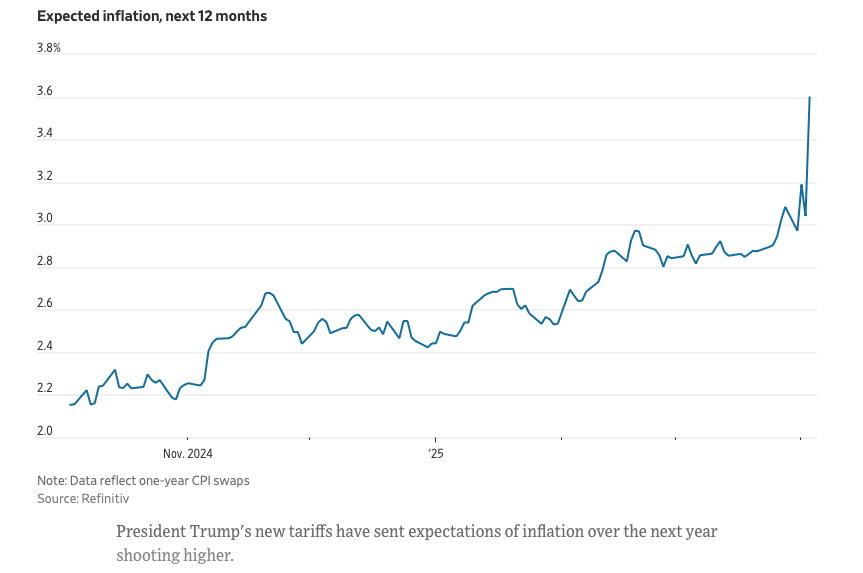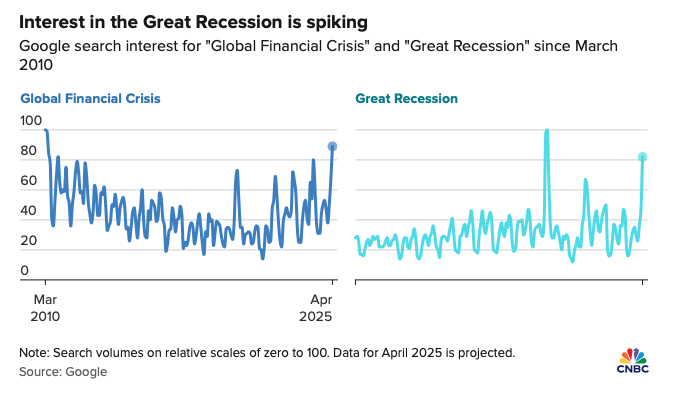There’s a positive development today in a joint press release from the Whitewater Unified School District and the City of Whitewater over a possible new agreement for a school resource officer. The release from the Whitewater Unified School District’s board president, on behalf of the district and the city, appears below: FOR IMMEDIATE RELEASE, DIRECTLY…
City
City, Daily Bread, Local Government, Open Government, Police, School District
Daily Bread for 5.1.25: More on a Whitewater School Resource Officer
by JOHN ADAMS •
Good morning. Thursday in Whitewater will be rainy with a high of 55. Sunrise is 5:48 and sunset is 7:55, for 14 hours, 7 minutes of daytime. The moon is a waxing crescent with 19.1 percent of its visible disk illuminated. Whitewater’s Public Arts Commission meets at 5 PM. On this day in 1931, the Empire…
City, Daily Bread, Local Government, Open Government, Police, School District
Daily Bread for 4.30.25: Discussion of Whitewater’s School Resource Officer Merits a 120-Day Contract Extension
by JOHN ADAMS •
Good morning. Wednesday in Whitewater will be cloudy with a high of 65. Sunrise is 5:50 and sunset is 7:54, for 14 hours, 5 minutes of daytime. The moon is a waxing crescent with 11 percent of its visible disk illuminated. On this day in 1803, American representatives sign a treaty to purchase the Louisiana Territory from…
America, Babbittry, Boosterism, City, Daily Bread, Economics, Economy, Special Interests, That Which Paved the Way, Trumpism, Willful Ignorance, Wisconsin
Daily Bread for 4.26.25: Consumer Sentiment Falls, and Web Searches for Economic Calamity Rise
by JOHN ADAMS •
Good morning.

Saturday in Whitewater will be sunny with a high of 59. Sunrise is 5:55 and sunset is 7:50, for 13 hours, 54 minutes of daytime. The moon is a waning crescent with 2.2 percent of its visible disk illuminated.
On this day in 1954, the first clinical trials of Jonas Salk‘s polio vaccine begin in Fairfax County, Virginia.
Two charts tell the tale of Americans’ economic concerns:
See Alex Harring, Americans are getting flashbacks to 2008 as tariffs stoke recession fears, CNBC, April 26, 2025.
When sentiment declines, it’s understandable that Americans would look for examples of other difficult times.
For modern Whitewater, the Great Recession’s influence is the key to understanding both economics and politics in the city. It is Whitewater’s signal modern event. Those difficult years from 2007-2009 led to an aftermath that still afflicts the city.
The failure of local officials and community leaders during that time was astonishing: the boosters1 wanted to deflect past others’ suffering, the special-interest men diverted valuable resources to their own schemes while Whitewater stayed poor2, the center-left grew but still struggles to land a decisive blow3, and the rightwing populists4 now in the city owe their present role as a faction to forces they can’t or won’t grasp.
_____
- Narrow of mind and small of heart. See the FREE WHITEWATER category on Boosterism. ↩︎
- Avaricious schemers failing time and again to match the accomplishments of the generation before them. See the FREE WHITEWATER category on Special Interests. ↩︎
- It does no good to talk to a hyena in a soft voice hoping that the vile creature will give up meat for vegetables. See Wisconsin Senate Democrats Hope Hyenas Will Stop Eating Meat. ↩︎
- An authoritarian populist movement of recrimination and revenge. See Defining Populism. ↩︎
Hubble views of Mars and more for space telecope’s 35th anniversary:
City, Film
Film: Tuesday, April 29th, 1:00 PM @ Seniors in the Park, Bridget Jones: Mad About the Boy
by JOHN ADAMS •
Tuesday, April 29th at 1:00 PM, there will be a showing of Bridget Jones: Mad About the Boy @ Seniors in the Park, in the Starin Community Building: Romantic Comedy Rated R (language) 2 hours, 4 minutes (2025) In this fourth (and final..?) film of the series Bridget (Renée Zellweger) is a now a widow,…
America, City, Daily Bread, Wisconsin
Daily Bread for 4.19.25: A Message from New England
by JOHN ADAMS •
Good morning.

Saturday in Whitewater will be partly cloudy with a high of 57. Sunrise is 6:06 and sunset is 7:42, for 13 hours, 36 minutes of daytime. The moon is a waning gibbous with 65 percent of its visible disk illuminated.
Across America, in places near and far, Americans will exercise today the right of the people peaceably to assemble. There will be many days like this, and many assemblies across this continent, each one part of a growing effort.
In Boston, Americans celebrated the 250th anniversary of the nighttime ride of Paul Revere. They added their own contemporary touches in projections on the side of the Old North Church:
— NorthEnd.page (@northendpage.bsky.social) April 17, 2025 at 9:16 PM
northend.page/old-north-pr… Silence Dogood has some more messages to deliver. Tonight their canvas was the Old North Church.
— NorthEnd.page (@northendpage.bsky.social) April 17, 2025 at 11:22 PM
Rare North African lion cubs play in the sun:
City, Film
Film: Tuesday, April 22nd, 1:00 PM @ Seniors in the Park, Wicked: Part 1
by JOHN ADAMS •
Tuesday, April 22nd at 1:00 PM, there will be a showing of Wicked: Part 1 @ Seniors in the Park, in the Starin Community Building: Fantasy/Musical Rated PG 2 hours, 40 minutes (2024) Oscar Winner: best costume design and best production design; nominated for Best Film, Best Actress and Supporting Actress. In the land of…
Business, City, Daily Bread, Economy, Employment, Excuses and Rationalizations, Planning, Tariffs, Taxes/Taxation, Trump, Wisconsin
Daily Bread for 4.14.25: Federal Planning for Manufacturing Isn’t Planning at All
by JOHN ADAMS •
Good morning.

Monday in Whitewater will be windy with a high of 59. Sunrise is 6:14 and sunset is 7:36, for 13 hours, 22 minutes of daytime. The moon a waning gibbous with 98 percent of its visible disk illuminated.
Whitewater’s Plan and Architectural Review Commission meets at 6 PM.
On this day in 1958, the Soviet satellite Sputnik 2 falls from orbit after a mission duration of 162 days. This was the first spacecraft to carry a living animal, a female dog named Laika, who likely lived only a few hours.
One of the justifications for tariffs is to bring back manufacturing to states like Wisconsin. It’s ill-considered:
But one of the biggest barriers to bringing manufacturing back, both in Wisconsin and nationally, is a labor shortage.
The U.S. Chamber of Commerce reportsthe latest data show there were around 1.2 million more jobs open nationally than there were unemployed workers. Wisconsin, meanwhile, has had more openings than job seekers since 2021.
Over the last decade, [founder of the Florida-based Reshoring Initiative Harry] Moser said employers have told him the U.S. labor market is “weak, both in terms of quantity of people and quality of people.” He said there have been efforts in recent years that have helped some, pointing to high school apprenticeship programs. He says Trump’s goal of bringing manufacturing back hinges on workforce.
….
In Wisconsin, a 2023 research report from WMC found the state’s median age was older than the rate nationally, and warned if the population doesn’t grow at a faster rate, workforce shortages would worsen.
“We don’t have enough workers for the jobs that we have, let alone if we want to grow a job (field),” [president of the business lobbying group Wisconsin Manufacturers & Commerce Kurt] Bauer with WMC said. “This is a significant challenge.”
See Joe Schulz, Trump says tariffs will bring back manufacturing, but Wisconsin’s labor shortage may stand in the way, Wisconsin Public Radio, April 14, 2025.
One hears talk in Whitewater on recruiting for manufacturing before any other priority. It’s more a diversionary tactic than anything else; these gentlemen are simply looking for something, however implausible, to shift the conversion.
Tariffs for Semiconductors Forthcoming:
City, Daily Bread, Tariffs, Taxes/Taxation, Trump, Trumpism, Wisconsin
Daily Bread for 4.13.25: The Anti-Tax Crowd Backed a Taxman
by JOHN ADAMS •
Good morning.

Sunday in Whitewater will be windy with a high of 66. Sunrise is 6:16 and sunset is 7:35, for 13 hours, 19 minutes of daytime. The moon a waning gibbous with 99.6 percent of its visible disk illuminated.
On this day in 1960, the United States launches Transit 1-B, the world’s first satellite navigation system.
In Whitewater, and towns across America, the Trump men put up signs reading “TRUMP LOW TAXES, KAMALA HIGH TAXES.” These signs were as ridiculous as they were false: Trump campaigned on tariffs and tariffs are taxes. (Yet the nature of an authoritarian populist movement like theirs is fallacies, fabrications, and as with their claims about COVID or election conspiracies, a refusal to accept contrary evidence.1)
Outside the required orthodoxy of Trumpism, conservative businessmen are among the first to admit the economic damage from these tariffs:
In interviews with Urban Milwaukee, all said the new tariffs will fuel inflation, raising costs for local companies, manufacturers, entrepreneurs and consumers; and that the shock waves created by the policy have the potential to send the U.S. economy into a recession.
“It’s almost unanimous concern, and I have not spoken to any business leader that’s celebrating the tariffs,” said Dale Kooyenga, President and CEO of the Metropolitan Milwaukee Association of Commerce, describing the responses he’s heard since the tariffs were announced.
The impact is registering immediately for some businesses, Kooyenga said. Like one local company he spoke with that placed a large product order. The tariff doesn’t apply to the date of purchase, but happens when the goods hit the dock in the U.S. “And so now that their order was so large and the tariff so large,” Kooyenga noted, “it creates significant cash flow issues in a time when interest rates are high.”
The new tariffs will produce a price shock for the local building and trades industry and construction budgets, said Dan Bukiewicz, President of the Milwaukee Building & Trades Council and mayor of the City of Oak Creek. “The reaction is not good,” said Bukiewicz. “From the contractors that perform construction work to small business owners that supply everything from safety vests to gloves, hard hats, safety glasses: [the price of] everything’s going up.”
See Graham Kilmer, Tariffs Will Hurt Business, Workers in Wisconsin (‘Local business, labor and university experts warn that tariffs will lead to a recession’), Urban Milwaukee, April 7, 2025.
All these loud and proud local anti-tax men supported a candidate who has now inflicted worse than anything they’ve ever complained about.
______
- See FREE WHITEWATER, Quick Observations on a Weekend, April 6, 2025. Many of these Trumpists, despite a few having pretensions otherwise, are and will always be Facebook types. See FREE WHITEWATER, Facebook Discussions as Displays of Ignorance, Fallacies, and Marginal Literacy, July 31, 2020. Their preferred medium is more disordered today than it was in 2020. ↩︎
Barred Owl Female Rises To Show Off Duo Of Fluffy Owlets – April 10, 2025:
City, Daily Bread, Local Government, School District
Daily Bread for 4.7.25: Referendums
by JOHN ADAMS •
Good morning.

Monday in Whitewater will be windy with a high of 46. Sunrise is 6:26 and sunset is 7:28, for 13 hours, 2 minutes of daytime. The moon is a waxing gibbous with 75.1 percent of its visible disk illuminated.
On this day in 1862, at the Battle of Shiloh, the Union’s Army of the Tennessee and the Army of the Ohio defeat the Confederate Army of Mississippi near Shiloh, Tennessee.
Referendums. One referendum for the City of Whitewater (Police & EMS personnel) and one referendum for the school district of which the city is the largest part are now behind us. Agreeably, happily behind us.
Both were important to their proponents, the Police & EMS referendum being especially so as it was operational. A referendum that retains or adds people (adding in this referendum to adjust workloads) is more important than capital improvements or modifications to public property. The loss of the municipal referendum would have increased burdens on the workforce (as rejection would have worked an attitudinal burden all its own on existing employees).
The community gets more personnel and the personnel know that the community appreciates the need for more personnel. These are each gains for Whitewater’s residents.
Of the district’s capital referendum’s merits, by contrast, it seems clear to me that enough could’ve been done with far less.
Taxes. An anti-tax wave swept Whitewater in the early winter and into the new year, but it did not change the result of either referendum. In January it looked to me as though it would sink both referendums, but by March that seemed less probable. The Police & EMS referendum was easily better offering. That city referendum seemed secure to me by March. We’ve no polling for the Whitewater area, but it’s likely the anti-tax faction saw what it wanted to see among like-minded residents, and ignored or distorted contrary indications among others.
The herding and magnifying influences of Facebook, especially, leave people thinking their views are more widespread than they are. It takes time and effort Facebook does not require (and does not provide) to assess opinion accurately. Facebook is often like a man who goes into the woods, makes a lot of noise, and then looks around for how many birds he can count. By then, only the loudest or deafest ones remain.
Rearview Mirror. These were important topics for the community, and yet, and yet… this libertarian blogger will be happy that they’re over.
Before us persist issues and conflicts in the city to address now that these referendums are behind us., happily behind us.
Veluwabbit (Lagomarsupialis veluwensis) spotted in the Netherlands on April 1st:
City, Daily Bread, Local Government, School District
Daily Bread for 4.6.25: Quick Observations on a Weekend
by JOHN ADAMS •
Good morning.

Sunday in Whitewater will be sunny with a high of 51. Sunrise is 6:27 and sunset is 7:27, for 12 hours, 59 minutes of daytime. The moon is a waxing gibbous with 65.8 percent of its visible disk illuminated.
On this day in 1865, at the Battle of Sailor’s Creek, Confederate General Robert E. Lee’s Army of Northern Virginia fights and loses its last major battle while in retreat from Richmond, Virginia, during the Appomattox Campaign.
A few quick observations:
Dorothy Day. Whitewater is divided into several factions, a divide that has grown wider over the last twenty years. The best outcome for Whitewater, after the Great Recession especially, would have been for Whitewater to have had a local version of Dorothy Day. That moment never came, and the recession of the Aughts became the lost years of the Teens, the rise of rightwing populism, a pandemic, another recession, and now a return to a populism more virulent than the last.
We are past the point when someone other than Dorothy Day, herself, could bridge the gap between defenders of the constitutional order and authoritarian populists. This political conflict will end only when one side prevails; pretending otherwise is delusional and attempting otherwise is futile. While not every event will be political, there’s no solution apart from the political.
City and Environs. The most obvious political observation one might make in our area is that the City of Whitewater is a center-left community and the nearby towns within the Whitewater Unified School District are on the right. The gap has grown between the city and these towns, and by now I would have thought that every man, woman, child, and household pet understood as much. Still, there’s room for empirical inquiry.
Coalitions. Whitewater has had, this last generation, a type now nearing endangered status: the supposed independent, or even Democrat, who aligns with conservatives (in this town, special interests) on major policies. These remaining few will keep pretending (of course they will) but stark political times make their kabuki evident for what it is. A soft-spoken liberal in a rightwing coalition is rightwing. No one owes anyone else his or her LARPing and cosplay. You are your vote, you are your coalition.
Fallacies and Denials. The people who brought you a politicized Christian theology, pandemic denialism, a recession thereafter, and claims that a violent insurrection was an act of love, now bring you an authoritarianism that offers nativism, book-banning, closet-confining, and a crackpot economics. The mix: fallacies of Tu Quoque (diversionary arguments by claims of hypocrisy), Whataboutism (diversionary arguments by claims of unrelated events), and a closed system of belief (where evidentiary counterexamples are denied or redefined beyond recognition).
The School District. Voters returned both board incumbents to office, and approved a large referendum. There’s probably more than one conservative who’s wondering what happened. I’ll answer only for my own view of the outgoing administration. Of my views of this administration, I have been clear: These Aren’t the MAGA Claims You Were Looking For and “Nice Person, But…”
These posts came in March 2024, when conservatives still held a majority on the board. For months prior, they had the chance to use that majority in the service of open government. They couldn’t muster four votes to rebuke a ridiculous defamation effort against a boardmember and send the current administration on its way. Should have been then.
I don’t think that the city saw the 2025 election this way, but I do: a conservative board didn’t act in 2024 when it should have, and a center-left board didn’t act as it should have in the year since. (No doubt, some rationalized this as a necessary defense against an instability that might have produced reactionary policies.)
The district instead should and can have open government and a community united against reactionary policies. Both, not either.
The district has been these recent years, all around, a dog’s breakfast.
How Japan Perfected the Art of Ramen:
America, City, Daily Bread, Local Government, Never Trump, Wisconsin
Daily Bread for 4.5.25: Go Outside
by JOHN ADAMS •
Good morning.

Saturday in Whitewater will be partly cloudy with a high of 50. Sunrise is 6:29 and sunset is 7:26, for 12 hours, 57 minutes of daytime. The moon is a waxing gibbous with 54.8 percent of its visible disk illuminated.
On this day in 1938, two days after the Nationalist army occupied the Catalan city of Lleida, dictator Francisco Franco decrees the abolition of the Generalitat (the autonomous government of Catalonia), the self-government granted by the Republic, and the official status of the Catalan language.
Our people have a centuries-long tradition of protest. Today, across this continent, Americans will exercise that right against Trump and Musk. There are both in-person and virtual events to which the American people are cordially invited. (You don’t need to be a Democrat, as I am not. Patriotism is your only necessary credential.) There’s no location for Whitewater, but other nearby by locations await (including Walworth, Janesville, Stoughton, Beloit, and Madison):
Donald Trump and Elon Musk think this country belongs to them. They’re taking everything they can get their hands on, and daring the world to stop them. On Saturday, April 5th, we’re taking to the streets nationwide to fight back with a clear message: Hands off!
A beginning only: every movement and every coalition has a beginning. Start, then keep going.
City, Film
Film: Tuesday, April 8th, 1:00 PM @ Seniors in the Park, Anora
by JOHN ADAMS •
Tuesday, April 8th at 1:00 PM, there will be a showing of Anora @ Seniors in the Park, in the Starin Community Building: Comedy/Drama/Romance Rated R (sexual content/nudity/language) 2 hours, 19 minutes (2024) Anora, a young sex worker from Brooklyn, NY, lives a Cinderella story when she hooks and impulsively marries the Russian son of…
Authoritarian Populism, Authoritarianism, City, Daily Bread, Economics, Economy, Local Government, Nativism, Never Trump, Recession, Special Interests, Tariffs, Wisconsin
Daily Bread for 4.4.25: Is Hyperlocal Politics Finally Dead?
by JOHN ADAMS •
Good morning.

Friday in Whitewater will be sunny with a high of 50. Sunrise is 6:31 and sunset is 7:25, for 12 hours, 54 minutes of daytime. The moon is a waxing crescent with 45.1 percent of its visible disk illuminated.
On this day in 1865, a day after Union forces capture Richmond, Virginia, President Lincoln visits the Confederate capital.
In this last generation, Whitewater, Wisconsin has felt the effects of national calamities: the Great Recession, a pandemic, an insurrection, and now a trade war.
In each case, a small group of local men and women carried on as though local affairs were paramount1; in each case, they did so while conditions in the city grew worse from those national calamities.
Now comes another calamity, and with it a few likelihoods.
Those who supported the authoritarian movement that made a pandemic worse, inspired an insurrection, the return to power of a would-be king, and now a global economic crisis will never admit that they were wrong. Never. They wanted this and they will continue to want this, all of it.

Those who cannot see past Townline Road won’t develop broader horizons. It’s all roads, press releases, and sanewashing with that crew. They’ll keep thinking that if you talk to a hyena in a soft voice that foul creature will give up meat for vegetables. They’d probably keep thinking this even as that carnivore crunched on the nearest human femur2.
There are, however, many more residents in this city, in this state, and this nation who will stand opposed to wholesale ruin.
Of that ruin, there are months and years of damage3 ahead, with this only a portion:
Is “recession” now spelled T-A-R-I-F-F?
Markets were gripped by the recession trade after President Trump’s tariffs on Wednesday threatened a global trade war. Treasury yields, stock futures and the dollar all plunged.
This isn’t mere market hyperbole. Thursday was only the sixth time in history that the S&P 500 had fallen more than 4% while the dollar also fell more than 1%—with investors shocked that the greenback had failed in its usual role as a safe haven.
The carnage in the markets might be just the beginning: If the biggest U.S. tax rise since at least the 1950s causes the economy to shrink, stocks and Treasury yields still have a long way to go down.
As recessions take hold, stocks are hit both by lower earnings and by lower valuations, as spending falls and savers switch to safer assets. Defensive stocks better able to maintain sales—such as sellers of food and other household staples—beat those selling optional purchases such as luxury goods and cars, known as cyclicals.
See James Mackintosh, Market Upheaval From Trump’s Tariffs Could Be Just the Beginning, Wall Street Journal, April 3, 2025.
______
- By contrast, this libertarian blogger has argued that the betterment of the city comes from applying the best of the nation. See FREE WHITEWATER, ‘How Many Rights for Whitewater?’, ‘What Standards for Whitewater?’, and ‘Methods, Standards, Goals’ (2013). ↩︎
- The last words of these sad types would likely be along the lines of ‘but I tried to be bipartisan!’ ↩︎
- The greater losses have been and will be to individual rights. ↩︎
We’ll have more than egg prices to worry about:

See Matt Grossman, Near-Term Inflation Expectations Surge, Wall Street Journal, April 3, 2025.


